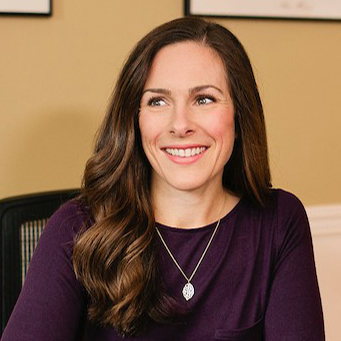Nurse Midwife Career and Degree Guide
Related Reading
What You’ll Study in a Nurse Midwife Program
Whether you choose a master’s or a doctoral degree, you’ll be highly trained in the care of women and their babies.
To become a certified nurse midwife (CNM), you’ll need to earn a Master of Science in Nursing (MSN) with a specialty in midwifery. Before you choose a program, you’ll want to make sure that it’s accredited and fits your timetable, goals, and career path.
In This Article
First, Undergraduate Work
As an aspiring certified nurse midwife, you’ll need to earn a graduate degree. But first you must become a registered nurse (RN). You can do this either by earning a two-year Associate Degree in Nursing (ADN) or a Bachelor of Science in Nursing (BSN), a four-year degree. Both will include clinical training and courses in anatomy, nursing, chemistry, and microbiology, among others.
An ADN may be the quickest path to becoming an RN. However, many aspiring RNs choose to pursue a BSN, which allows you to move straight into a graduate degree program.
With an ADN, you’ll eventually need two more years of undergraduate study to earn a BSN, or to enroll in an ADN-to-MSN bridge program.
Graduate Programs: Master’s Versus Doctorate
Certified nurse midwifes are advanced practice registered nurses (APRNs), a category that requires nurses to hold a graduate degree. Like other APRNs, such as nurse practitioners, certified nurse midwives must have at least an MSN to practice. While there’s been discussion in the industry about requiring CNMs to have a doctoral degree, the American College of Nurse-Midwives (ACNM) says it opposes such a requirement.
“While the outcomes for master’s-level education have been well-established, there has not been sufficient research to show that adding a doctoral-level education requirement influences outcomes,” says Sharon L. Ryan, CNM, DNP, director of Midwifery Practice, Education, and Global Outreach for the ACNM. “We also take into consideration the additional burdens, in terms of finances and time, that a DNP requires.”
The American College of Nurse-Midwives opposes proposals that would require a DNP for certified nurse midwives.
Aspiring Midwives Can Stick with an MSN for Now
The American Midwifery Certification Board Inc. (AMCB), the national board that certifies nurse midwives to practice, hasn’t issued a ruling on any changes in certification requirements. For the foreseeable future, prospective nurse midwives will remain eligible for certification after earning an MSN, says Carrie D. Bright, IOM, CAE, and CEO of the American Midwifery Certification Board Inc.
Bright says her organization is aligned with the APRN Consensus Model, created in 2008 to bring uniformity to the training, education, and certification of APRNs. Under the model, a nurse can become an APRN with a master’s or doctoral degree and certification.
Pro Tip: Prospective nurse midwives will want to track this issue and talk to prospective schools and programs about any potential changes in the education they’ll need to become a nurse midwife.
Prerequisites for a Master’s
Before enrolling in a master’s program, you’ll have to meet some education and work requirements. Most schools will check for some or all of these:
Master’s Coursework
General master’s courses are largely the same for all APRNs:
Once you’ve covered the basics for your master’s, you’ll enter the world of nurse midwifery, where your courses will focus on labor and delivery and women’s health issues.
Specialty Master’s Coursework
Once you’ve covered the basics for your master’s, you’ll enter the world of nurse midwifery, where your courses will focus on labor and delivery and women’s health issues. Your classes will reflect the fact that CNMs not only see women through pregnancy, delivery and aftercare, but they also provide primary healthcare for many women.
You’ll also receive hands-on clinical experience and training, and some schools might require a certain number of clinical hours to graduate.
Your specialty courses likely will cover these topics:
Gynecology
Care of newborns
Women’s health topics
Advanced practice nursing
Professional issues in midwifery
Intrapartum and postpartum care
Time to Complete a Graduate Degree
Earning an MSN can take between 18 to 24 months for full-time students who are starting with a bachelor’s degree. Part-time options are available and usually take between three and four years. Some schools require that you finish your education in a set amount of time, so if you attend part time, make sure to find out what that deadline is.
Depending on how you pursue your education, it will take a combination of the following years in full-time study to complete a master’s or a doctorate.
Associate degree
Two years
Bachelor’s degree
Four years
Master’s degree
Two years
(post-graduate)
Doctoral degree
Two to three years
(post-graduate)
Fast-Track Programs
There are several programs that can help you complete your education faster than traditional routes. They may save you money as well.
Bridge programs
Students with an ADN can complete their nurse midwife certification requirements sooner by enrolling in an RN-to-MSN program. Called bridge programs, these education pathways can take two to three years of full-time study to complete, potentially saving students time and money compared to traditional BSN or MSN programs.
Another bridge program is the BSN to DNP, which can take three to four years of full-time study.
Accelerated programs
These programs are for students who have a bachelor’s degree outside of healthcare but want to earn an MSN for a healthcare career such as midwifery. These tracks typically take three years of full-time school.
Online Programs

In addition to campus programs, online and hybrid studies are available for nurse midwifery programs. They can be an appealing option for students who also need to make time for work, kids, or other responsibilities. The hands-on training and clinical work you’ll need to complete your degree also could factor into the kind of program you choose.
Ryan says all of these programs can prepare students for a successful career as a nurse midwife.
Online and hybrid programs can be an appealing option for students who also need to make time for work, kids, or other responsibilities.
“First, I’d advise prospective students to find a program that fits their learning style,” she says. “There are online, brick-and-mortar, and hybrid programs available. If they choose an accredited program, they’re going to be well prepared when they’re finished.”
Certification
Once you’ve earned a graduate degree from an accredited nurse midwife program, you will be eligible to take the AMCB exam. The computer-based exam consists of 175 multiple-choice questions, and candidates have four hours to complete it.
Passing this test qualifies you to practice as a certified nurse midwife.
School and Program Accreditation
It’s nearly impossible to underscore how important it is that your school and midwifery program are accredited. If they aren’t accredited, you won’t qualify to take the AMCB exam and become a certified nurse midwife.
There also are other drawbacks:
Without certification, you may be able to practice as another type of midwife—but without the autonomy and authority that CNMs enjoy, including prescribing medication and treatment and other tasks reserved for advance practice registered nurses. Other midwives also don’t earn the same salaries as certified nurse midwives.
Main Accreditation Bodies
Look for accreditation from these groups as you check out schools.
The Accreditation Commission for Education in Nursing (ACEN): Accredits diploma, associate, bachelor’s, and master’s nursing programs
Accreditation Commission for Midwifery Education (ACME): Accredits midwifery education programs
The Commission of Collegiate Nursing Education (CCNE): Accredits bachelor’s, master’s, and doctoral nursing programs
Pro Tip: It’s a good idea to check directly with potential schools and programs about the status of their accreditation.
Accreditation isn’t bestowed in perpetuity. It’s usually given for a certain amount of time, and the length of time can differ by school and program.
You’ll want to make sure that your program and school will be covered while your completing your degree.

With professional insight from:

Director of Midwifery Practice, Education and Global Outreach, American College of Nurse-Midwives

CEO of the American Midwifery Certification Board, Inc.


